
Science Feedback releases datasets of Web domain credibility
Assessing the reliability of online sources of information at scale is a necessary precondition for improving the quality of the…
Latest in

Assessing the reliability of online sources of information at scale is a necessary precondition for improving the quality of the…
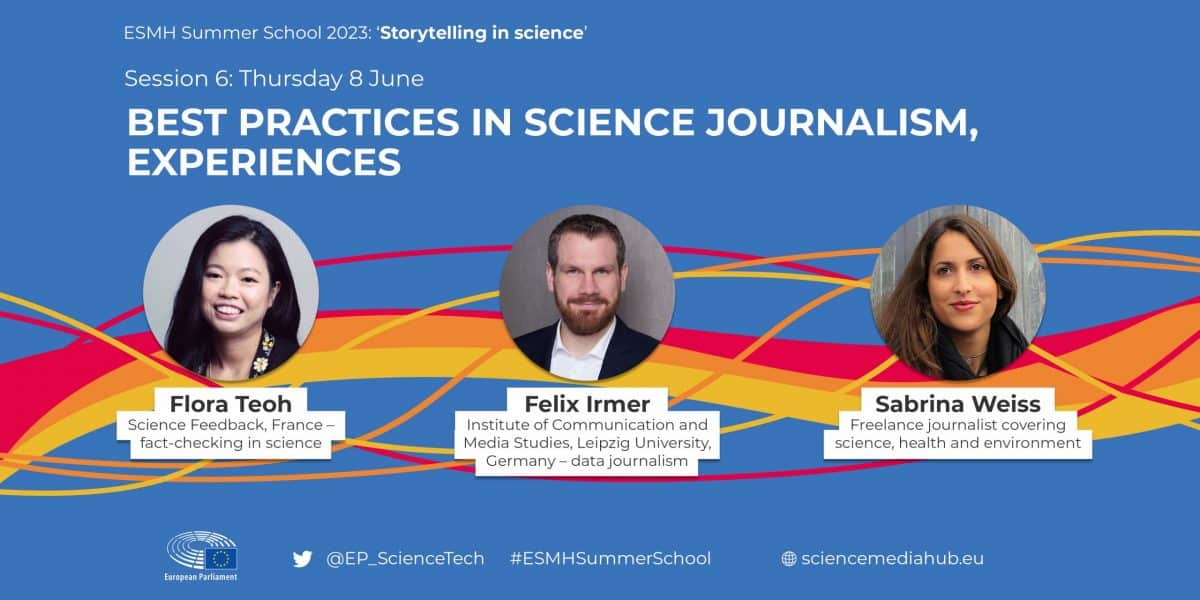
Flora Teoh, PhD, Science Editor at Health Feedback, was invited to speak at the session on “Best practices in science…
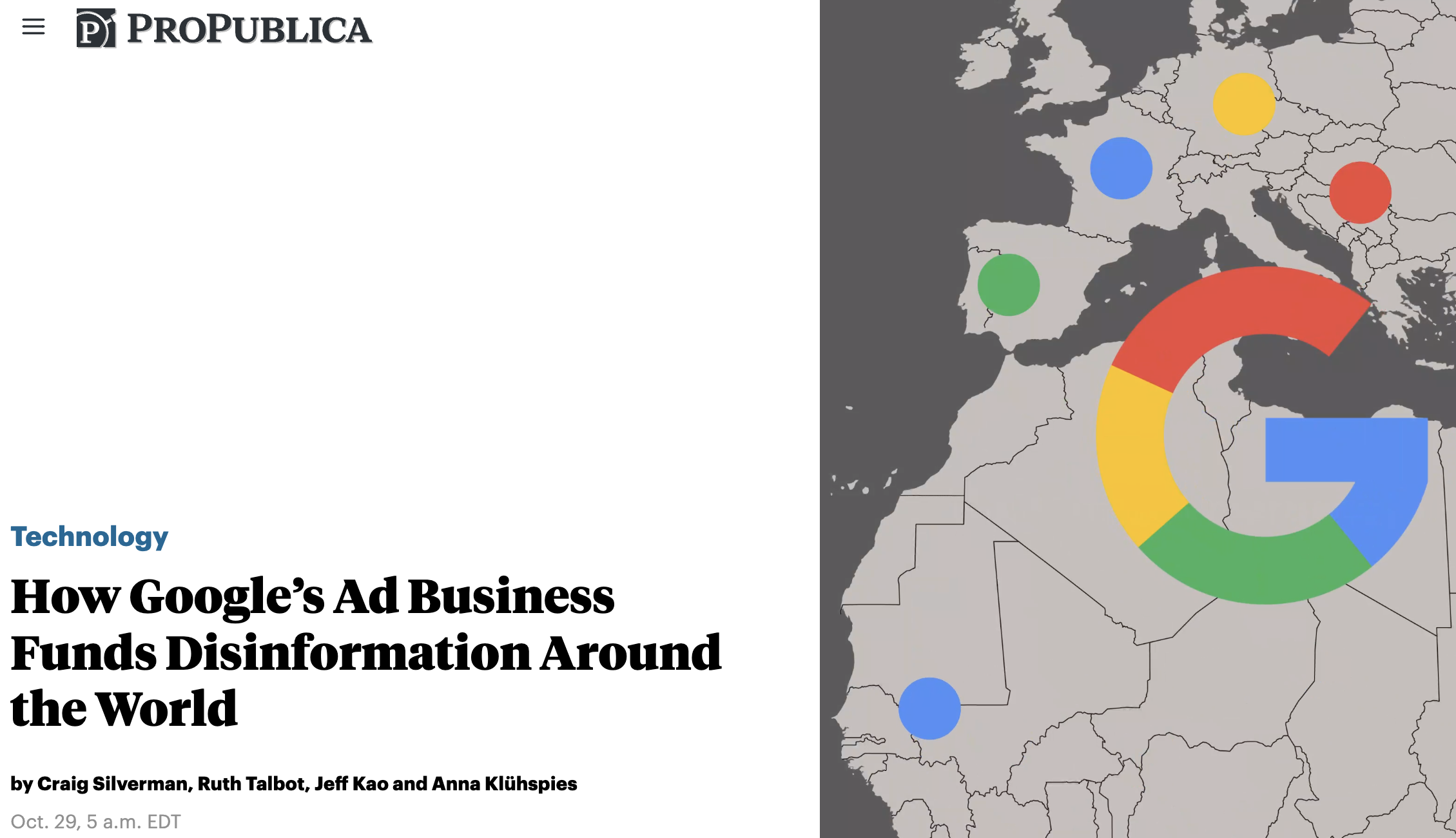
ProPublica finds that Google still monetizes many websites and articles that promote harmful misinformation, much of which is in direct breach of its stated demonetization policy. Enforcement of its own rules on languages other than English is particularly lacking.
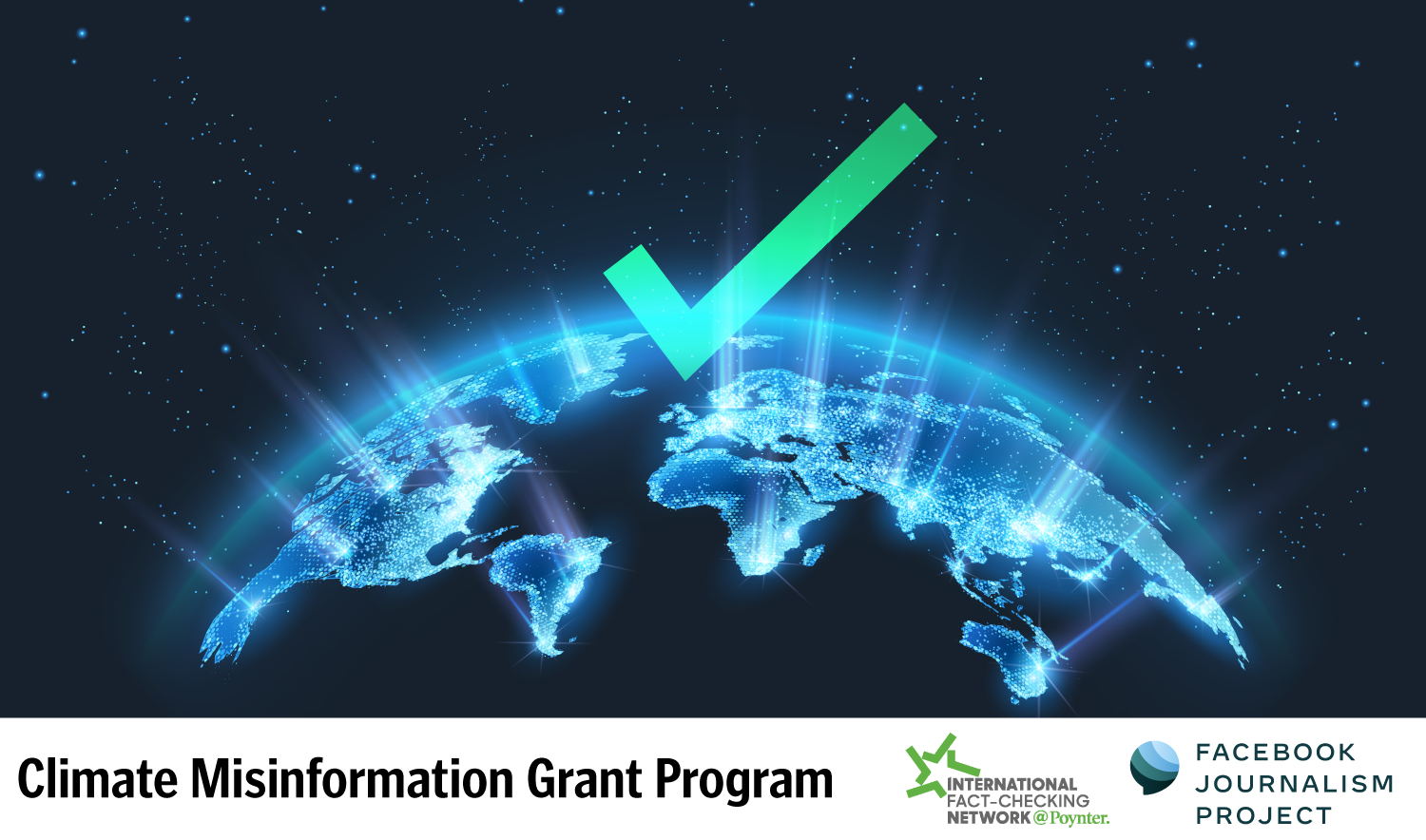
Supported by the Climate Misinformation Grant Program from the International Fact-Checking Network (IFCN) at the Poynter Institute, Science Feedback is…

“The examples are too many to count. Many of those videos and channels remain online today, and they all went under the radar of YouTube’s policies, especially in non-English speaking countries and the Global South. We are glad that the company has made some moves to try to address this problem lately, but based on what we see daily on the platform, we think these efforts are not working“
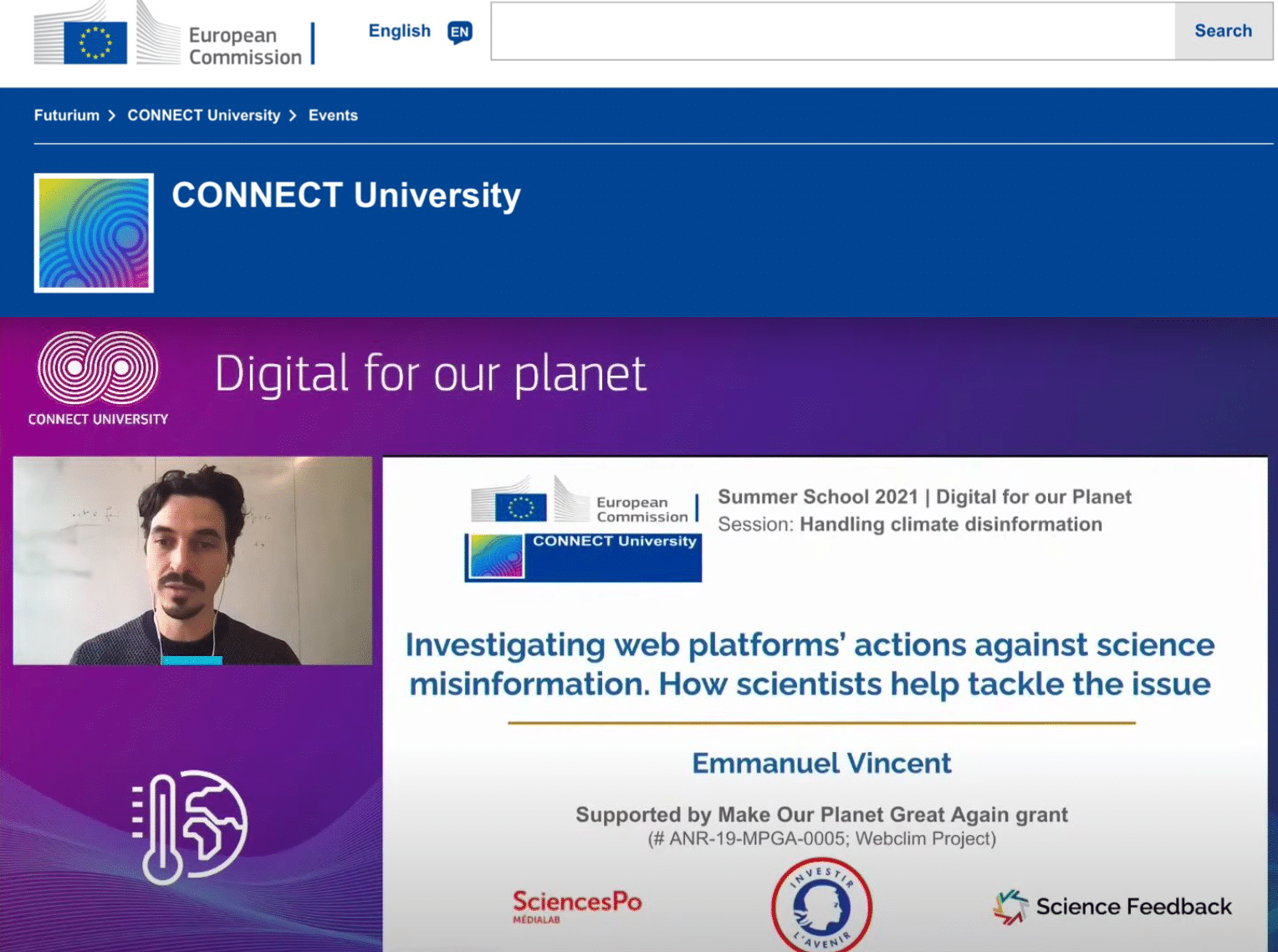
Emmanuel Vincent, PhD, Founder & Director of Science Feedback was invited to participate in the European Commission CONNECT University Summer…

Science Feedback is very pleased to be awarded a development grant from the Poynter Institute’s International Fact-Checking Network (IFCN). This grant aims to further…
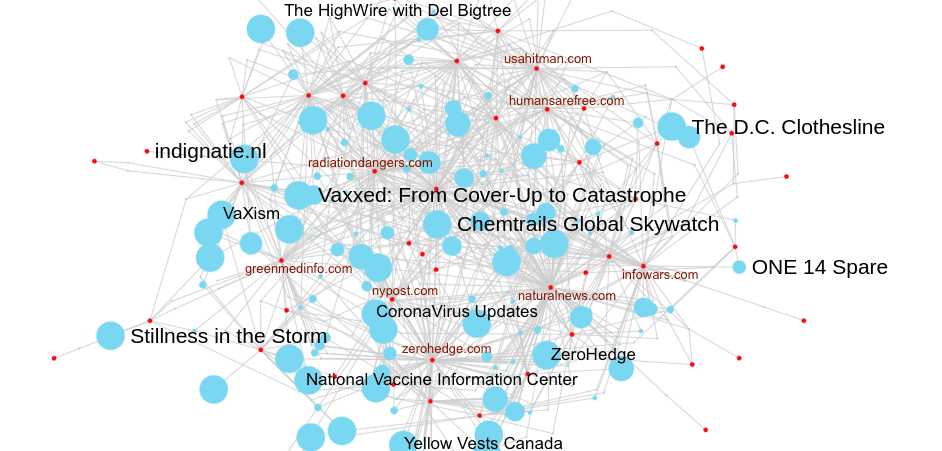
As the novel coronavirus continues to spread throughout the world, so does false or misleading information about the pandemic online.…

Science Feedback has received accreditation from the International Fact-Checking Network (IFCN) at The Poynter Institute. Previously accredited based on its…

In April 2019, Science Feedback started working with Facebook as part of their fact-checking program. While misinformation currently floods the…